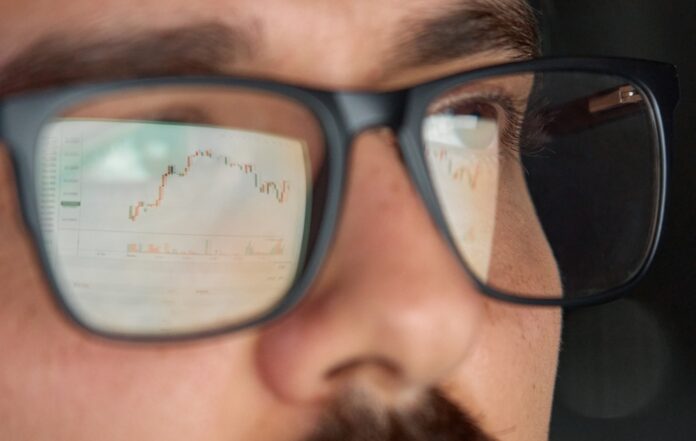Founder Liquidity in Brazil, a pioneering study by Endeavor, mapped the expectations and liquidity history of 118 tech company founders for the coming years. The research, sponsored by Google Cloud, Prosus, and Peers Consulting, explores how Brazilian entrepreneurs are preparing for and experiencing liquidity events—secondary sales, M&As, and IPOs—in a context marked by a decline in public offerings.
The study, launched at the Annual Gathering of Scale-Up Ventures, an event by Endeavor’s venture capital fund, is accompanied by a series of videos with 10 testimonials that will be released throughout the fourth quarter, featuring stories of Brazilian entrepreneurs who have experienced major liquidity events. The series begins with Guilherme Benchimol, on XP’s IPO, and over the weeks also includes names like Eric Santos (RD Station), Stelleo Tolda (Mercado Livre), and Sergio Furio (Creditas). In each episode, they reveal the behind-the-scenes of negotiations and the impact of the transactions on the future of their businesses and careers.
M&As and secondary sales will be the main events in the next 24 months
According to the survey, 79% of Brazilian entrepreneurs are preparing for a liquidity event in the next two years. With public offerings expected to return to the US only from 2028 and to B3 after 2030, the focus falls on secondary sales and M&As.
The survey cites recent examples that have shaken the Brazilian market, such as Experian’s acquisition of ClearSale for $350 million, Conta Azul’s deal with Visma for $300 million, and Contabilizei’s secondary sale to Warburg Pincus.
“We are no longer talking about liquidity only as an exit moment,” says Gustavo Cruz, Director of Network and Capital at Endeavor Brazil. “What we see is that, when well structured, M&As and secondary sales keep the founder in the game and provide breathing room for the next growth cycle,” he adds.
The rise of secondary sales
Conversations about secondary sales, which previously came with caution—especially after excessive payments in the 2020-2021 cycle—are now gaining more space in negotiations between entrepreneurs and investors. Only 5% of the founders surveyed cite succession or exit as motivation for the next secondary sale; 77.5% point to personal wealth planning as the main reason.
“For entrepreneurs and leaders who love what they do and don’t want to sell the company, having partial liquidity events helps in the long term—especially those with families and children,” says Sergio Furio, Endeavor Entrepreneur and founder of Creditas, in his testimony that will air on Endeavor’s channels in October.
Before the IPO, M&As gain strength
The study shows that acquisitions in Brazil have occurred mainly up to Series B, when valuations are still attractive and there are more strategic buyers. From Series C onward, price expectations rise and the number of buyers decreases.
According to Gustavo, “when the company is world-class from day one, like Pismo or 99, the value delivered can be as high—or even higher—than that of an IPO. But we are also seeing ‘emerging champions’ making their own acquisitions, such as Nigeria’s Moove buying Kovi in January. It’s proof that transactions between emerging markets can generate as much value as those of global players.”
When asked which liquidity path aligns most with their personal values, 32.2% of founders cited IPO. The view, however, is more pragmatic: it is seen as a demanding capitalization strategy that imposes significant operational and cultural demands. According to Endeavor, the major liquidity events of 2030 are already being prepared today, as many founders take five to ten years to be ready.
One of the examples explored in the study is VTEX, one of the most successful Brazilian listings on the NYSE. Since 2016, they prepared the company for global scale, a process that culminated in the public offering in New York five years later. “There are faster ways to raise funds, but the IPO is the one that best aligns long-term growth with credibility in the global market. It strengthens both commercial reach and the company’s visibility.” — says Geraldo Thomaz, Endeavor Entrepreneur and co-founder of VTEX, in a testimony to be released in October.
The study also reveals that M&As, which are a full exit option, have generated new journeys: 51.9% of founders move on to another business, and 48.1% become investors. From Series B onward, even more founders use their resources to invest and found new companies. In Series D, the giveback rate (donations and philanthropy) reaches 71.4%, compared to 26% in early stages.
According to Endeavor, well-capitalized ex-founders return to invest, mentor, and build again, generating the so-called “Multiplier Effect.” The case of 99’s sale to Didi Chuxing in 2018 illustrates this point. Former 99 employees founded businesses and became Endeavor Entrepreneurs—such as Ury Rappaport (Swap), Adhemar Milani (Kovi), Matheus Moraes, and André Florence (Alice). “Providing liquidity to 20 key people meant they could spend the following years without worrying about paying their own bills. That was an essential component in making the ‘99 mafia’ possible.” — says Paulo Veras, founder of 99, in a testimony airing next week.


